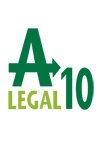Best Mortgage Lawyers in Bree
Share your needs with us, get contacted by law firms.
Free. Takes 2 min.
Free Guide to Hiring a Real Estate Lawyer
List of the best lawyers in Bree, Belgium
About Mortgage Law in Bree, Belgium
Mortgage law in Bree follows Belgian federal law on real rights and secured credit, applied locally in the province of Limburg and the Flemish region. A mortgage creates a real security right over immovable property to secure repayment of a loan. In Belgium the creation and modification of a mortgage generally requires a notarial deed and registration so that the mortgage is enforceable against third parties. Local practical steps like registration, taxation and enforcement are handled through notaries, registries and judicial authorities that serve Bree and the surrounding area.
Why You May Need a Lawyer
You may want a lawyer for mortgage matters when the transaction or problem is complex, when substantial money or legal risk is involved, or when your rights need defending. Common situations where a lawyer can help include reviewing or negotiating loan agreements, resolving disputes with a lender or developer, advising on foreclosure risk and alternatives, negotiating restructurings or forbearance, representing you in court proceedings, and helping with cross-border or language issues. Lawyers can also help interpret clauses that affect early repayment penalties, variable rate provisions, or security arrangements beyond the mortgage itself.
Local Laws Overview
Key legal principles and local procedures relevant in Bree include:
- Notarial formalities: Mortgages on real property are typically created by notarial deed. The notary will draft the deed, check title, advise on formal requirements and arrange registration.
- Registration and publicity: Mortgages must be registered in the land registry or mortgage register to be opposable against third parties. Registration affects priority between competing creditors.
- Priority rules: Belgian law establishes priority by date of registration. If multiple creditors claim secured rights, the earlier registered right usually ranks higher on proceeds from a forced sale.
- Consumer protections: If you are a consumer-borrower, there are specific protections and information duties imposed on lenders. Contracts must include clear information on costs, interest rates and consumer rights.
- Enforcement and foreclosure: If a borrower defaults, the lender must follow judicial procedures to enforce the mortgage, typically involving a forced sale. Enforcement is carried out under Belgian judicial and enforcement rules and involves bailiffs and courts.
- Taxes and costs: Mortgages and property transfers generate notarial fees, registration duties or transfer taxes, and various administrative costs. The exact amounts depend on the transaction details and applicable regional tax rules in Flanders.
- Language and local authorities: Bree is in Flanders, where Dutch is the official language for documents and court proceedings. If you are not fluent in Dutch, you should arrange translation or legal advice in a language you understand.
Frequently Asked Questions
What is a mortgage and how does it work in Belgium?
A mortgage is a real security right on immovable property granted to a lender to secure repayment of a loan. In Belgium it is typically created by notarial deed and registered with the land registry. If the borrower defaults, the lender can seek enforcement through the courts and obtain payment from the proceeds of a forced sale of the property.
Do I need a notary to take out a mortgage in Bree?
Yes. In Belgium mortgage rights over real property are usually established by a notarial deed. The notary checks the title, prepares the deed, and handles registration and related formalities. Notaries also advise on the legal and tax consequences of the mortgage.
What costs should I expect when taking a mortgage?
Expect notarial fees, registration or mortgage registration costs, possible mortgage tax or administration fees, appraisal and administrative fees charged by the lender, and any mortgage insurance costs. There may also be ongoing costs related to property taxes and maintenance. Exact amounts vary with the loan, property value and regional tax rules.
Can I repay my mortgage early and are there penalties?
Early repayment is generally possible, but your mortgage contract may include compensation for the lender, especially if the loan has a fixed rate. The amount and conditions for early repayment depend on the contract and applicable consumer protection rules. Always review the mortgage deed and ask a lawyer or notary to explain early repayment terms before signing.
What happens if I miss payments or default on my mortgage?
If you miss payments the lender will typically issue formal notices and may offer repayment arrangements. Continued default can lead the lender to start enforcement proceedings, which may result in a forced sale of the mortgaged property. Before enforcement, you can often negotiate alternatives such as restructuring, moratoriums, or sale of the property to repay the debt. Seek legal advice early if you face payment difficulties.
How long does a foreclosure or forced sale take in Belgium?
There is no fixed timetable. The process requires judicial steps and involvement of bailiffs and courts, and can take many months depending on case complexity, court workload, and whether there are disputes or appeals. Early engagement with a lawyer or mediator can shorten the process or help avoid foreclosure.
Can I change lender or transfer an existing mortgage to another property?
Switching lenders or transferring a mortgage is possible but requires consent from the existing lender and completion of notarial and registration formalities. Transferring the mortgage to another property is not automatic and depends on the lender's security requirements. Review contractual clauses and consult a notary or lawyer to understand implications and costs.
Are there consumer protections for mortgage borrowers in Belgium?
Yes. Consumer borrowers benefit from information duties by lenders, transparent disclosure of costs and interest, and specific rules for consumer credit. These protections aim to ensure borrowers understand the loan terms. The exact scope depends on whether the loan qualifies as consumer credit and on applicable regulations.
What documents will I need to apply for a mortgage in Bree?
Typical documents include proof of identity, proof of income and employment, recent bank statements, tax documents, details of existing debts, property documents or sales agreement, and identification of co-borrowers if any. Lenders may also require a property valuation. Bring originals and certified copies to meetings with lenders or notaries.
Where should I get local advice in Bree - a lawyer or a notary?
Use a notary for the formal deed, registration and neutral transaction advice. Consult a lawyer when disputes arise, when negotiating complex contract terms, if you face enforcement, or when you need court representation. For initial transactional questions you can speak to a notary; for litigation or complex negotiations choose a lawyer specialised in real estate and mortgage law.
Additional Resources
Useful local and national bodies and organisations to contact for information or assistance include:
- Your local notary office in Bree for deed preparation, title checks and registration.
- The Orde van Advocaten - Limburg or local bar association for referrals to lawyers specialised in real estate and mortgage law.
- The National Bank of Belgium for credit registration and information on the central credit register.
- The Financial Services and Markets Authority and national banking ombudsman for complaints against financial institutions and information on lender conduct.
- Federal Public Service Finance for tax and registration duty information relevant to property transactions.
- Consumer organisations such as Test-Aankoop for guidance on consumer rights and common issues with lenders.
- The municipality of Bree for local administrative contacts and information about municipal matters affecting property.
If you need legal aid, ask the local bar association about eligibility for subsidised legal assistance under the Belgian legal-aid system.
Next Steps
Follow these practical steps if you need legal assistance with a mortgage in Bree:
- Gather key documents: identity papers, proof of income, bank statements, the preliminary sales agreement, and any communications with the lender.
- Schedule an initial consultation with a notary for transactional matters or with a lawyer for disputes or complex negotiations. Ask whether the professional offers a fixed-fee initial meeting.
- Compare offers carefully: check interest rate type, fees, early repayment terms and total cost. Request written explanations for any clause you do not understand.
- If you face difficulty paying, contact your lender early to discuss options and consult a lawyer to protect your rights before enforcement steps begin.
- If cost is a barrier, contact the local bar association to learn if you qualify for subsidised legal aid.
- Keep clear records of all correspondence and agreements, and insist on written confirmations for any negotiated arrangement.
If you are unsure where to begin, a notary in Bree or a local lawyer experienced in mortgages can review your situation and propose the most appropriate next steps for your case.
Lawzana helps you find the best lawyers and law firms in Bree through a curated and pre-screened list of qualified legal professionals. Our platform offers rankings and detailed profiles of attorneys and law firms, allowing you to compare based on practice areas, including Mortgage, experience, and client feedback.
Each profile includes a description of the firm's areas of practice, client reviews, team members and partners, year of establishment, spoken languages, office locations, contact information, social media presence, and any published articles or resources. Most firms on our platform speak English and are experienced in both local and international legal matters.
Get a quote from top-rated law firms in Bree, Belgium — quickly, securely, and without unnecessary hassle.
Disclaimer:
The information provided on this page is for general informational purposes only and does not constitute legal advice. While we strive to ensure the accuracy and relevance of the content, legal information may change over time, and interpretations of the law can vary. You should always consult with a qualified legal professional for advice specific to your situation.
We disclaim all liability for actions taken or not taken based on the content of this page. If you believe any information is incorrect or outdated, please contact us, and we will review and update it where appropriate.










